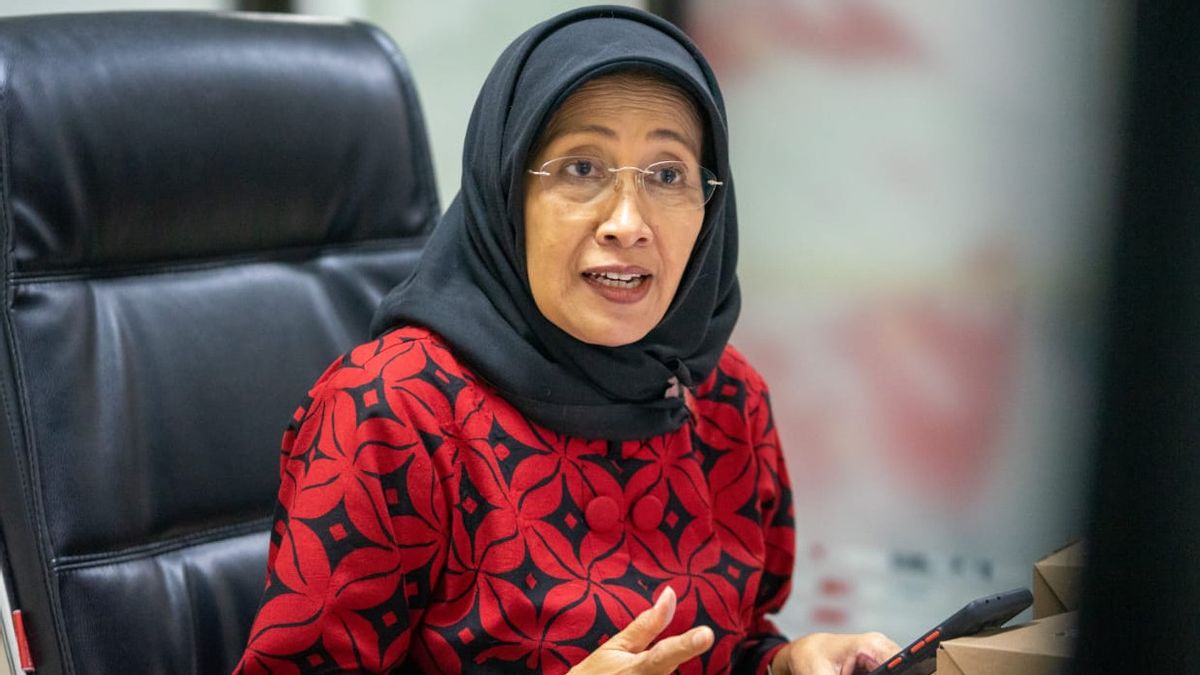JAKARTA - The Presidential Staff Office appreciates the Ministry of Foreign Affairs (Kemlu) for moving quickly to free Indonesian citizens from the death penalty after the abolition of Malaysia's Mandatory Death Penalty, last March.
There are 157 Indonesian citizens in Malaysia facing the death penalty, both in the process and already in the process. The majority are related to drug networks.
Since the abolition of the Malaysian Mandatory Death Penalty, the Indonesian Embassy in Kuala Lumpur has sought 42 cases of the death penalty faced by Indonesian citizens.
The Main Expert Staff of the Presidential Staff Office, Siti Ruhaini Dzuhayatin, assessed the quick response of the Directorate of Protection of Indonesian Citizens, the Indonesian Ministry of Foreign Affairs, a form of implementing the President's constitutional mandate in protecting the people. "The President always emphasized that the state must be present to protect the Indonesian people, both domestically and abroad," Ruhaini said as quoted by ANTARA, Friday, September 22.
Ruhaini conveyed that the abolition of the Mandatory Death Penalty was retroactive.
So for those involved in drug cases due to ignorance, coercion, or being victims of the Crime of Trafficking in Persons (TPPO), a change of sentence can be sought. However, it also depends on the role and position of the defendant.
"If they are not part of the network that produces and solely as couriers, then the death penalty can be considered to be changed," Ruhaini explained.
Efforts to waive the death penalty through the abolition of the Mandatory Death Penalty do not mean that the Indonesian government is taking over the case. However, the Indonesian government is given the authority to provide assistance, and ensure that the judicial process runs fairly and proportionally, including considerations of the vulnerability of workers.
"This good work is a concrete step from the commitment of President Joko Widodo and Malaysian Prime Minister Datuk Anwar Ibrahim in increasing cooperation in protecting Indonesian workers in Malaysia," said Ruhaini.
Ruhaini emphasized the importance of early prevention to avoid TIP. According to him, all stakeholders from upstream to downstream, both families, villages, sub-districts, and districts socialize literacy working abroad that is safe and productive.
"Prevention from upstream to downstream will really present the country in the protection of Indonesian citizens abroad as a comprehensive and inclusive constitutional mandate," he concluded.
VOIR éGALEMENT:
Previously, the Presidential Staff Office was also involved in a Focused Discussion between the Indonesian Party and Malaysia regarding the abolition of the Malaysian Mandatory Death Penalty, in Yogyakarta, Thursday (21/9).
From Indonesia, among them represented by the Indonesian Besa Ambassador to Malaysia, the Director of the Protection of Indonesian Citizens at the Ministry of Foreign Affairs, the Coordinating Minister for Political, Legal and Security Affairs, as well as representatives from BNN, university academics, and community organizations. Meanwhile, from Malaysia, namely representatives from the Deputy Prime Minister Office of Malaysia in the field of law, and Indonesian citizens' attorneys in Malaysia.
The English, Chinese, Japanese, Arabic, and French versions are automatically generated by the AI. So there may still be inaccuracies in translating, please always see Indonesian as our main language. (system supported by DigitalSiber.id)


















